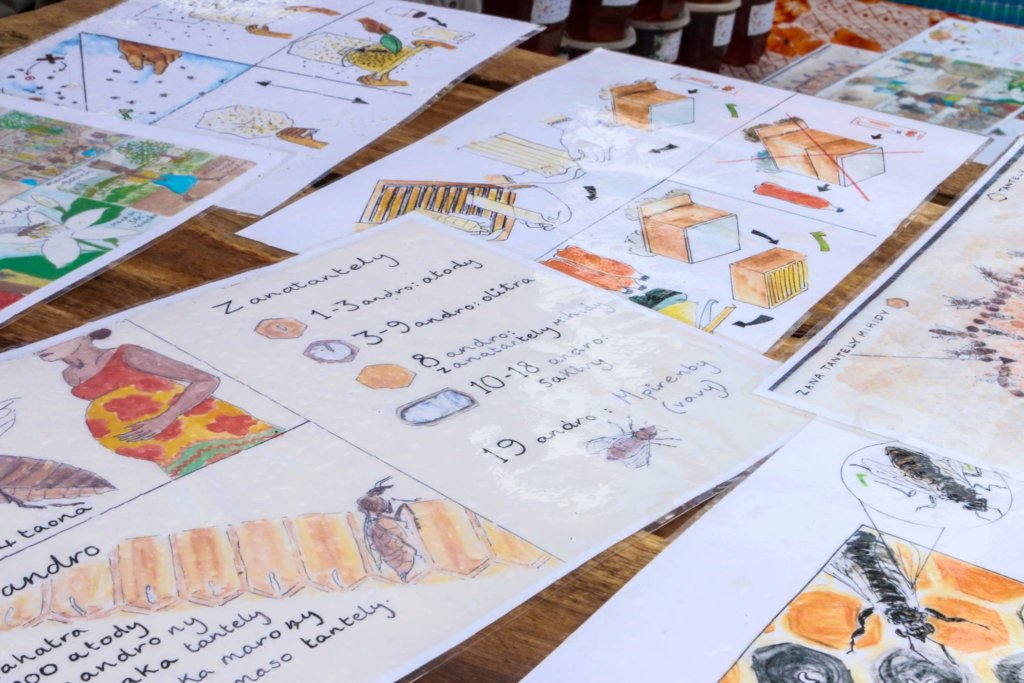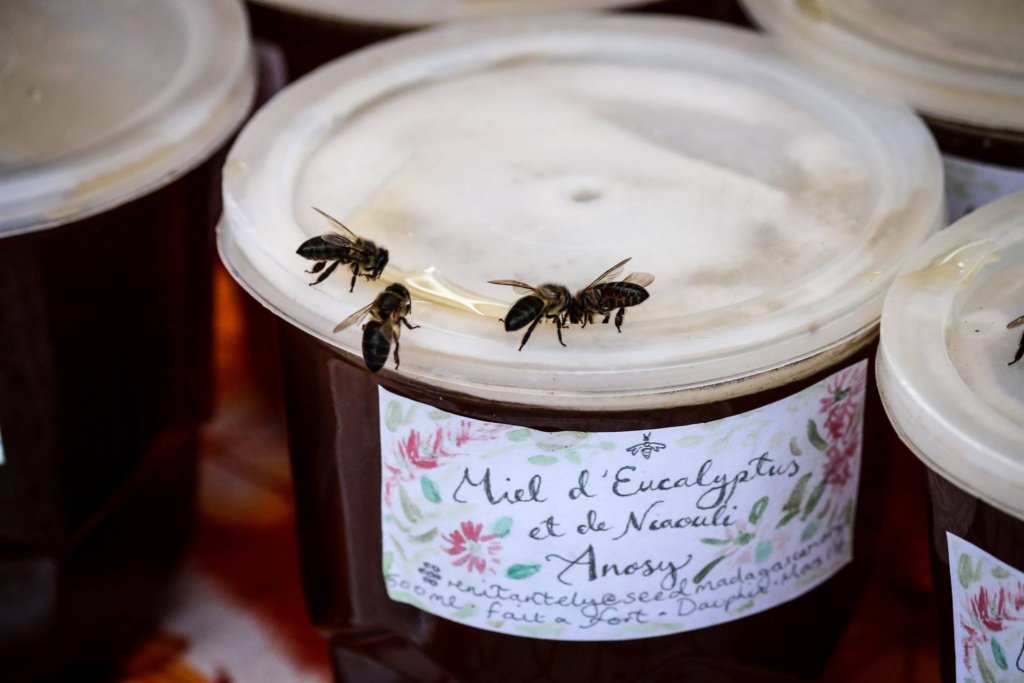By Jack Ord | Project Development Officer
One of the main aims of Project Renitantely, and one of its biggest challenges for beekeepers in the Anosy Region, is establishing secure, equitable and sustainable routes to market for honey products. This is a challenge for a whole host of reasons: firstly many of our beekeepers live and work in incredibly remote and rural locations, often kilometres away from the nearest dirt track, let alone road. In addition, a lack of exposure to modern beekeeping methods means that the quality of honey produced is often not high enough to return equitable prices. Limited connections with honey suppliers and resellers leaves beekeepers with no option but to sell honey for low prices at local produce markets. Even if these suppliers were accessible, stringent new export regulations may prevent the small-scale beekeepers from accessing export opportunities and transforming their bees’ products into a sustainable livelihood. The past months have seen Project Renitantely tackle these issues head on.
In rural communities, the majority of beekeepers sell their honey for very low prices at local weekly produce markets, which often means walking for hours to hand over several litres of honey for under $1.50. The solution is close to home. In the regional capital of Fort Dauphin there are a number of honey product suppliers and resellers, both private businesses and beekeeping cooperatives, who are prepared to pay a fair and equitable price for each litre of honey. Project Renitantely staff have been establishing connections with these suppliers, introducing them to the project and giving them a taste of our beekeepers’ finest honey. Negotiations will lead to formal purchase agreements in the coming months, ensuring that beekeepers receive fair prices for their bees’ toil and giving them the impetus to advance beekeeping as a livelihood.
In early April, Fort Dauphin hosted the region’s first annual honey festival. This provided the perfect opportunity for the project’s beekeepers to showcase their products to a wide audience and meet the suppliers who will be buying their honey. The only issue? Quality control. Whilst traditional beekeeping has long been practised in southeast Madagascar, modern techniques are relatively new to the region’s beekeepers, which can mean that the quality of honey is at times inconsistent. Whilst this is something that has, and will continue to be, the focus of project training sessions, the grand stage of the honey festival presented a reason and motivation for some intensive quality control workshops. The day before the festival, all of the beekeepers travelled into town from their villages and received in-depth training on honey harvesting methods, product cleanliness and storage. Their hard work paid off following day when their honey was snapped up quicker than you can say Bzzz…
Earlier in the year, four tonnes of honey were successfully exported from the Anosy Region for the first time in over ten years. Whilst this should present tangible and exciting opportunities for the project and the wider region to achieve fantastic prices for honey products, there are concerns that the accompanying directives may exclude small-scale beekeepers, undermining the value chain and sustainability of beekeeping in Anosy. To ensure that beekeeping can serve as a life changing livelihood, Project Renitanely staff will monitor the feasibility of these directives and if necessary, advocate for a more sustainable and inclusive route to export. Not to be underestimated, this is a mammoth challenge: though it is one that if faced appropriately could change the lives, of not only Renitantely’s beekeepers, but of apiculturists across the entire south of Madagascar.
Links:
By Harry Stigner | International Beekeeping Specialist
By Jack Ord | Project Development
Project reports on GlobalGiving are posted directly to globalgiving.org by Project Leaders as they are completed, generally every 3-4 months. To protect the integrity of these documents, GlobalGiving does not alter them; therefore you may find some language or formatting issues.
If you donate to this project or have donated to this project, you can recieve an email when this project posts a report. You can also subscribe for reports without donating.
Support this important cause by creating a personalized fundraising page.
Start a Fundraiser

